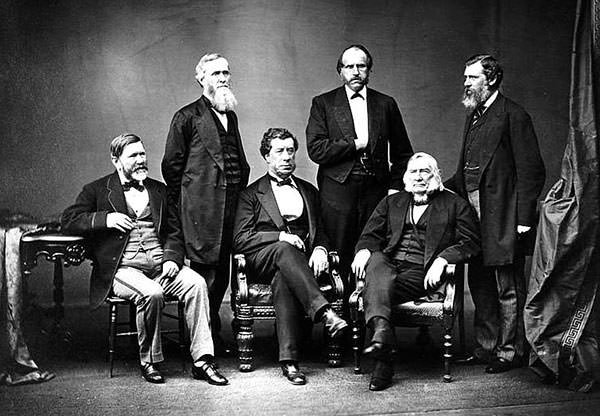President Ulysses S. Grant ended the first era of the KKK, in 1875
The Civil Rights Act of 1875
Apart from the 15th Amendment and the Enforcement Acts, the Civil Rights Act of 1875 was signed into law by Ulysses S. Grant. It banned discrimination in public accommodations and public transportation. However, despite these measures, by the end of the presidency of Grant, Southern Democrats had regained political control of state governments. Civil Rights Act of 1875 could not be effectively enforced and, eight years later, the Supreme Court ruled it as unconstitutional.The Supreme Court also narrowly interpreted the 15th Amendment in late 19th century and, from 1890 to 1910, most black voters in the South were effectively disenfranchised by obstacles introduced by new state constitutions and state laws. Thus Grant’s measures to protect African American rights were not successful in the long term. Grant also tried to work out a Peace Policy with Native Americans. He believed that, given an opportunity, they could serve alongside white men.
However the Peace Policy was a failure and over 200 battles were fought with Native Americans during his tenure. Though Grant’s policy was a bold departure from his predecessors and considered humanitarian for the time, it has later been criticized for its disregard for native cultures.
Ulysses S. Grant ended the first era
of the Ku Klux Klan
The Ku Klux Klan (KKK), a group believing in white supremacy, undermined Reconstruction efforts through violence and intimidation. It first flourished in the late 1860s and was the most prominent of the white supremacy organizations who attacked the suffrage and other rights of African Americans. One of the primary reasons of the Enforcement Acts was to counter the KKK and thus they are sometimes known as the Ku Klux Klan Acts, especially the Third Enforcement Act.Grant did not hesitate to use the authority provided to him by the third act on numerous occasions during his presidency. It was only after its passage that trials were conducted, and perpetrators were convicted for any crimes they had committed in violation of the Enforcement Acts. Grant’s new Attorney General, Amos T. Akerman, brought over 3,000 indictments of KKK members throughout the South and obtained 600 convictions for the worst offenders. As a result, the KKK was completely dismantled and it did not surface again in any meaningful way till the 1920s.
The influential Treaty of Washington was negotiated
The Alabama Claims were a series of demands for damages sought by the U.S. government from the United Kingdom for attacks on Union vessels by Confederate Navy ships built in British shipyards during the American Civil War. The claims get their name from the raider CSS Alabama, which successfully attacked Union merchant and naval ships for two years before being sunk. The Alabama Claims, as well as various other disputes between the U.S. and the U.K., such as illegal fishing in Canadian waters and British civilian losses in the American Civil War, were settled by the Treaty of Washington in 1871.Among other things, the matter was settled with Britain paying the United States $15.5 million. The Treaty of Washington is considered a huge success and it led to permanent peaceful relations between U.S. and Britain; and U.S. and Canada. It has been called the “the greatest treaty of actual and immediate arbitration the world has ever seen.” Dispute with U.K. was one of most pressing foreign policy concerns for the Grant administration
and its resolution is one of its main achievements.
The American High Commissioners to the
Treaty of Washington
Treaty of Washington
Other major foreign policy achievements during the presidency of Ulysses S. Grant include the Reciprocity Treaty of 1875, which gave free access to the U.S. market for sugar and other products grown in the Kingdom of Hawaii in exchange for special economic privileges for America. The treaty led to large investment by Americans in sugarcane plantations in Hawaii leading to incorporation of the islands’ sugar industry into the economic sphere of the United States.




No comments:
Post a Comment